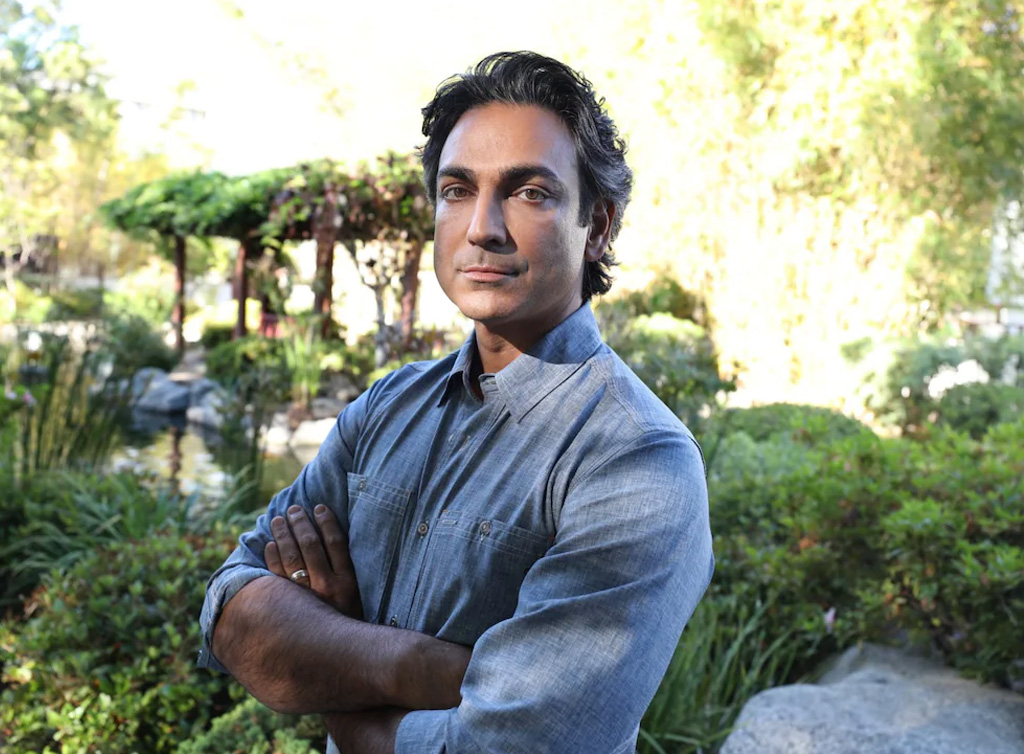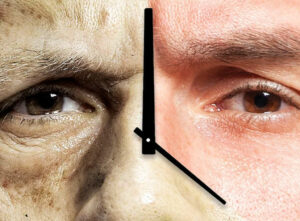Image credit: Dan Tuffs
The patient arrived in Dr Rahul Jandial’s Los Angeles consulting room wearing a halo vest, a metal contraption that keeps the head connected to the neck. Without it she would crumple, as cancer had already eaten through the bones at the top of her spine.
“La doctora”, as Jandial refers to her, as she was a physician herself, had made the long journey from Puerto Rico to see him. Like many of his clients, she had stage 4 cancer. Her fate was already sealed; there is no stage 5. Having already been turned away by a number of surgeons, her last hope was Jandial – a renowned brain surgeon at the City of Hope, one of the world’s leading cancer centres. She wanted him to operate, so that she might make it to her son’s graduation, in a few months, free of the lacerating pain that was surging through her body.
There was a 90 per cent chance that the surgery would “damage her in ways that, for most, would be worse than death”, says Jandial, but since she was a doctor, who fully understood the risks, he did not deny her her wish.
The case is one of many jaw-dropping tales from Jandial’s career in medicine detailed in his new book, Life On A Knife’s Edge.
His 2019 book, Life Lessons from a Brain Surgeon, was a bestseller. This time, he says, he wanted to explore the lessons we can all take from patients facing their own mortality.
“When people ask me about being a cancer surgeon, they think it’s going to be depressing, but it isn’t… it’s inspiring,” he tells me in a rich, deep California accent over the phone.
“I’ve met thousands of people, opened thousands of skulls, and started to see some patterns.
“I realised there is no greater window into humanity than cancer patients – not just the surgery, but the moments before, how they cope.”
If you need such a thing as a brain surgeon, there could be worse places to find yourself than in Jandial’s care, with his deep wells of empathy, stellar reputation and twinkly-eyed, chiselled looks.
Though his job often involves delivering bad news, he says he has seen many patients “grow” from the trauma of a diagnosis such as cancer – a compulsive worrier, for example, who to the amazement of his family, finally stopped sweating the small stuff.
“There is a clarity they get when the finish line comes into sight. When they know that they have years, but not decades, their lives change. Some, they flail. It’s just too much. But I saw many become triumphant and live life in the way they wish they would have before the cancer diagnosis.”
Over the past year, we have all had to live with ongoing uncertainty, a state that Jandial has come to know well from working with patients who must return to the clinic every three months to view their scans and face their fate. “How do you do that? How do you keep coming to the cancer centre, yet enjoy the time in between? One approach they have taught me is: let’s have a miserable week when the scans are scheduled. But can we protect the 11 weeks in between the scans? So they take a compartmentalised approach to coping, enjoying and making the most of life, yet also letting themselves just be heartbroken when that stressful time comes.”
The pandemic has primed our brains for vigilance, he says, and that was appropriate in 2020, “but now the question is: are we going to stay unnecessarily anxious and vigilant? Or are we going to try to process that and give life a chance?”
The past year has been “intense”, he says, “we’ve said goodbye to our parents over FaceTime, but yes, it has built us in some systemic way. You’re not necessarily happier after you’ve gone through a crisis [like this] but you are a bit inoculated; it brings out the fight in you.”
“I want people to feel empowered that this work, to cope with this year, will improve your life. There’s an opportunity here because the brain is not static.”
What if we’re stuck in a state of high anxiety in the aftermath of the pandemic? He suggests a simple process of checking in to ask: “Does that feeling belong? Did I overreact?” This kind of self-awareness encourages a process of “arborisation”, as the neuronal branches from our emotional and thinking brains will grow and intermingle. In this way we can literally redesign our brains, he says, so that we cope better in future.
His other tip for post-pandemic brain fitness: breathe. Deeply. “I know what you’re going to say, but stay with me, there’s proof for it,” he says. “Three seconds in. Three seconds out. The biological effect is as powerful as benzodiazepine sedatives.”
He deploys the technique himself during tense moments in theatre – when an aneurysm explodes, for example, and he needs to stop the patient’s heart, so that he can clip the vessel before the brain is starved of oxygen.
Fortunately, Jandial’s temperament is well suited to these kinds of high-stakes situations, though he wasn’t always this focused. After two years at Berkeley he dropped out and took a job as a security guard in the college cafeteria. It was there he met his wife, Danielle, now an oncologist, with whom he has three teenage sons – the couple have recently separated.
He managed to claw his way back into college and went on to medical school; during his training he was snapped up for the highly-coveted role of neurosurgery intern, because he didn’t flinch under pressure.
His book is filled with cutting edge brain research and powerful stories of human trauma and resilience – including his own.
With admirable honesty he tells of the case of Karina, an 11-year-old girl whose spine had grown a sharp spur of bone that risked severing her spinal cord if she grew in an adolescent growth spurt. The operation went well, but in closing the wound, instead of inserting a few tiny surgical screws to support the bone, he chose a less invasive option – he “went academic”, ignoring the nagging feeling in his gut.
When Karina woke after surgery her legs were paralysed. He took her back into theatre, but it was already too late. The bone had collapsed, severing her spinal cord. “Just seeing the child and knowing the decades of challenges and struggles she would face that she couldn’t understand, and her parents couldn’t understand – that I had added – that really shook me,” he says.
“I spiralled and it became this thought and feeling in my mind that I couldn’t shake for decades – that I was helping people, but I was also hurting people.”
He had “hang ups about getting help”, but instead started doing paediatric neurosurgery in developing countries and pushed himself to take on ever more difficult cases, as a way to heal himself.
It was only after his father died unexpectedly aged 76, in 2018, following complications from routine surgery, that he stopped trying to erase his demons through “surgical conquests”.
“I started to see that surgery is not the mountain top, but the patient’s journey and who they are after [is what matters],” he says.
After la doctora’s surgery – which Jandial considered his apex or “Olympic performance” – she was pain-free, for a while. She died 10 months later, but not before she’d taken one last photo with her son at his graduation.
“With the doctor I partnered with her, I walked with her to get to that moment. And that’s something powerful. That’s a gift as a surgeon, yet I didn’t cure her and she was still in a wheelchair. That’s the complexity that most people don’t think about.”
Click here to read the original article.




